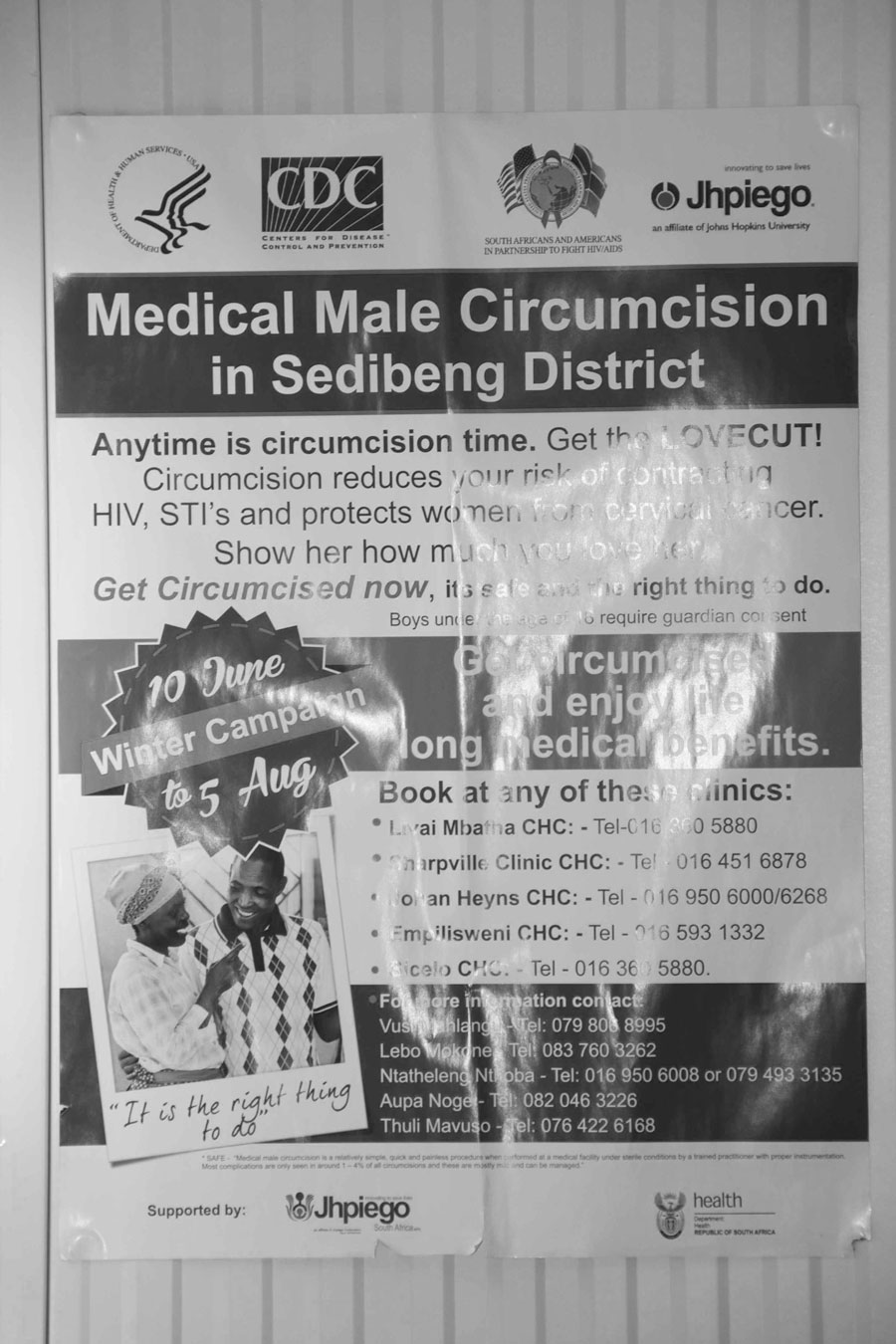CDC’s HIV Prevention Programs in South Africa:
Biomedical Prevention
Medical Male Circumcision

CDC South Africa (with USAID, Department of Defense and PEPFAR) is collaborating closely with the South African Government to support its vision of using medical male circumcision (MMC) to help achieve a population-level reduction in new HIV infections by the 2015/2016 financial year. South African Government estimates the country must reach 80 percent of eligible males, which translates to approximately 4.3 million MMCs in five years.
The 2012 HSRC report states that male circumcision has increased overall in 2012 among men 15 years and older, however, the rates of VMMC still remains low overall compared to traditional circumcision. The percentage of males who report having been traditionally circumcised remains highest, especially among ethnic groups where circumcision is a traditional rite of passage for males. However, the tide has begun to turn among youth aged 15–24 years as the majority of them were medically circumcised. Although this is most promising, the fact that the majority of males are still undergoing traditional circumcision means that the country may not be able to meet the target set by SANAC, namely, having 80% of HIV-negative men medically circumcised within the 15–49 age bracket by 2015, unless the demand for VMMC increases.
South African Government has outlined a catch up strategy for MMC, which entails:
- building infrastructure and human resources for high quality, high volume MMC sites
- targeting men aged 15 – 49 years
- implementing MMC as part of a comprehensive package of male sexual and reproductive health services.
CDC South Africa is:
- assisting in strategic planning and the development of guidelines
- funding implementation partners in service delivery and other technical support, ranging from communications to training
- working with DOD to assist the South African Military Health Services (SAMHS) in launching an MMC program for their troops
- assisting the South African Government to develop tools and systems to ensure that the scale up is adequately monitored and evaluated
PEPFAR has contributed more than 100,000 MMCs since initiating service delivery in 2010, and currently has more than 30 active or planned MMC sites in targeted locations with high HIV incidence and low existing rates of male circumcision.